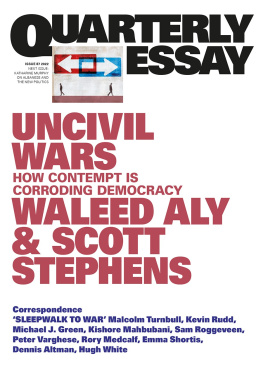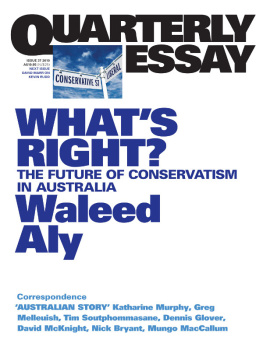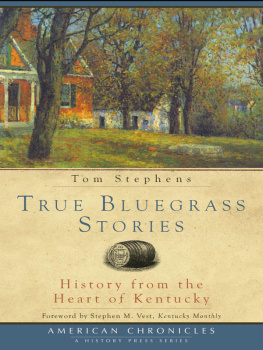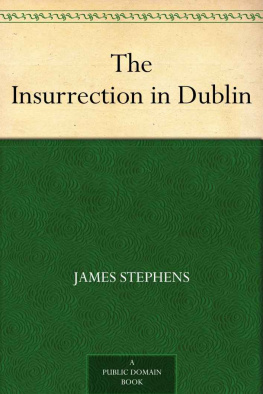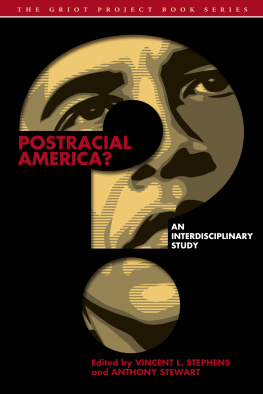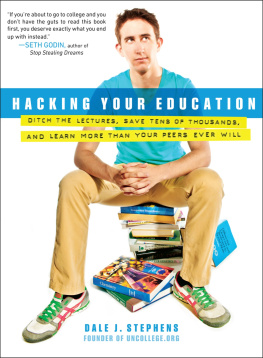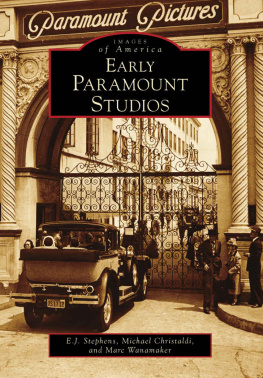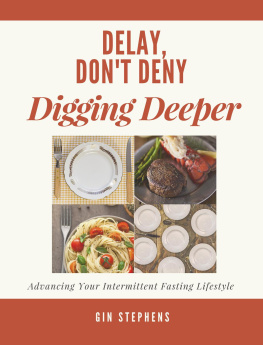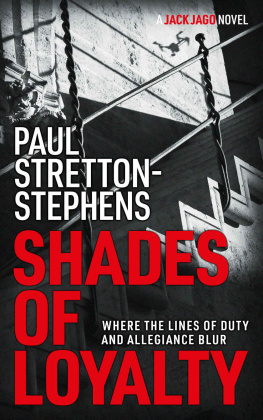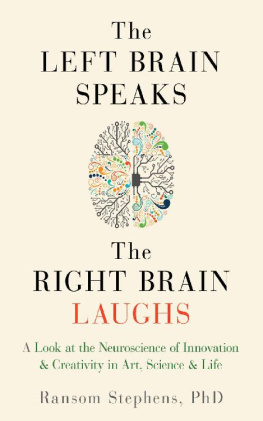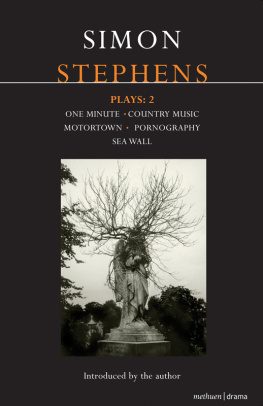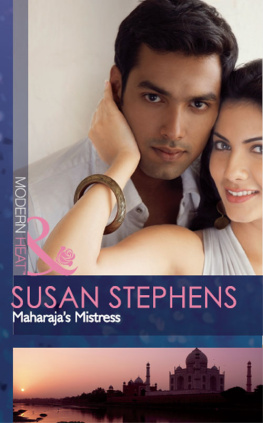Quarterly Essay
Quarterly Essay is published four times a year by Black Inc., an imprint of Schwartz Books Pty Ltd. Publisher: Morry Schwartz.
ISBN 9781760643560 ISSN 1444-884x
eISBN 9781743822548 eISSN 1832-0953
All Rights Reserved.
No part of this publication may be reproduced, stored in a retrieval system, or transmitted in any form by any means electronic, mechanical, photocopying, recording or otherwise without the prior consent of the publishers.
Essay & correspondence retained by the authors.
Subscriptions 1 year print & digital (4 issues): $79.95 within Australia incl. GST.
Outside Australia $119.95. 2 years print & digital (8 issues): $149.95 within Australia incl. GST.
1 year digital only: $49.95.
Payment may be made by Mastercard or Visa, or by cheque made out to Schwartz Books. Payment includes postage and handling.
To subscribe, fill out and post the subscription card or form inside this issue, or subscribe online:
quarterlyessay.com
Phone: 61 3 9486 0288
Correspondence should be addressed to:
The Editor, Quarterly Essay
2224 Northumberland Street
Collingwood VIC 3066 Australia
Phone: 61 3 9486 0288 / Fax: 61 3 9011 6106
Email:
Editor: Chris Feik. Management: Elisabeth Young. Publicity: Anna Lensky. Design: Guy Mirabella. Assistant Editor: Kirstie Innes-Will. Production Coordinator: Marilyn de Castro. Typesetting: Typography Studio.
Rapacity reigns, passions are obeyed, the world is given priority, and each person admires his own opinion.
Prophet Muhammad
You start to think of contempt as a virus.
Zadie Smith
We gasp for air among people who believe they are absolutely right, whether it be in their machines or their ideas. And for all who cannot live without dialogue and the friendship of other human beings, this silence is the end of the world.
Albert Camus
UNCIVIL WARS | How Contempt Is Corroding Democracy |
Waleed Aly & Scott Stephens |
Somethings amiss, isnt it? We may live in the first period of human history where every demographic feels that they are somehow being violated and victimized, writes Mark Manson, capturing something at once familiar and bewildering about our moment. This is not simply one of those revolutionary moments when the long-downtrodden rise up against their oppressors as witnessed, for example, at the height of the civil-rights struggle in the 1960s, or a century earlier with the womens suffrage movement. Sure, that may be part of the story, but such a summary would prove too partial.
This is instead a moment when almost any issue can draw sharp lines between us: climate change, taxation, the language on a medical form. It is now entirely common for each of the opposing sides of a vociferous debate to consider themselves shamed and silenced, unable to speak without being branded in some malevolent way. In this respect (and perhaps only in this respect), advocates speaking of the existential erasure of transgender people speak the same language as gender-critical feminists who complain of the erasure of women under the axioms of gender fluidity. Black American activists talk of the existential threat they face at the hands of a white-supremacist culture, while repeated surveys reveal a majority of white Americans think anti-white discrimination is as bad as or worse than discrimination against blacks and other minorities. Among the white working class, the figure rises to about two-thirds.
So often we distil this as Sally, a viewer of the BBCs Question Time, did in a tweet to the show in 2019: Why is everyone, so angry about everything, all of the time? Predictably, that tweet invited its own anger, with respondents sneering at Sallys excessive use of commas. But punctuation aside, everyone seems desperate to answer the question. The English-language internet is awash with articles diagnosing the incandescent tone of public debate and doling out advice on how best to handle it, especially with family and friends. That last point is fundamental, not least in the United States, where partisan division has hardened so much that it is now frequently terminating friendships and leaving family members unable to converse. In 2016, the Pew Research Center showed just how rapidly and deeply Democratic and Republican voters mutual suspicion and disdain was advancing: majorities of each now had a very unfavourable view of the other more than double what it was at the turn of the millennium. By 2020, Pew found that Biden and Trump voters hardly knew each other. A mere 3 per cent of each had a lot of friends who supported the opposing candidate. Around 40 per cent of each said they had no friends at all who did. Add to them those who have only a few such friends, and the number on either side approaches 80 per cent.
Australian polarisation is not quite so severe, and has less voluminous data to measure it, but we can easily discern a similar direction of travel. Its absolutely staggering, declared Andrew Charlton, a former senior adviser to Prime Minister Kevin Rudd and now Labor MP, in 2018. The warning lights on the dashboard of our democracy are blinking red. Its very hard to constructively govern in an electorate that is so divided. Surveys show that voters regard the major parties as becoming more politically extreme, even though analysis of party policies, speeches and voting records by Political Compass demonstrates that ideologically they have scarcely moved. This underscores data from the 2013 Australian Election Study: in asking voters to rank their own political leanings from 0 (very left-wing) to 10 (very right-wing), it revealed increasing numbers who place themselves far from the statistical mean. Since the study began in 1996, Labor and Greens voters have placed themselves further to the left, Liberals have been largely consistent, and Nationals voters place themselves further to the right.
Data aside, we already intuit this. Public broadcaster SBS can happily publish a comment piece on How to survive your conservative relatives this Christmas, presumably because this seems a familiar concern. The aftermath of the 2019 federal election, in which Queensland played a decisive role, saw a proliferation of tweets and memes calling for a Quexit, demanding Australia cut them loose! This, we think, was a joke, along the lines of What the hell is wrong with Queensland? But it was taken seriously enough to prompt earnest think-pieces pleading with Australians, dont judge, try to understand us.
So, anger, sure. Rage, or even outrage, yes. All these are such common descriptions of our age because they capture something of the truth. And yet they miss something, too. People have always gotten angry at their loved ones, but they remained loved. Something deeper is going on here, when it leads not merely to flashes of disagreement, but to a more permanent alienation. Whatevers amiss in public conversation, we dont seem quite to have diagnosed it precisely.
On 9 September 2016, amid the maelstrom of Americas presidential election campaign, Hillary Clinton gave a campaign speech at a fundraiser in which she made what quickly became an infamous observation about Donald Trumps supporters. You know, to just be grossly generalistic, you could put half of Trumps supporters into what I call a basket of deplorables, she said, to laughter from the audience. Right? Theyre racist, sexist, homophobic, xenophobic, Islamophobic you name it. And unfortunately, there are people like that Now some of those folks they are irredeemable, but thankfully, they are not America. By contrast, the other half the other basket had Clintons sympathy. They were people who felt let down by government and the economy, people we have to understand and empathize with.

